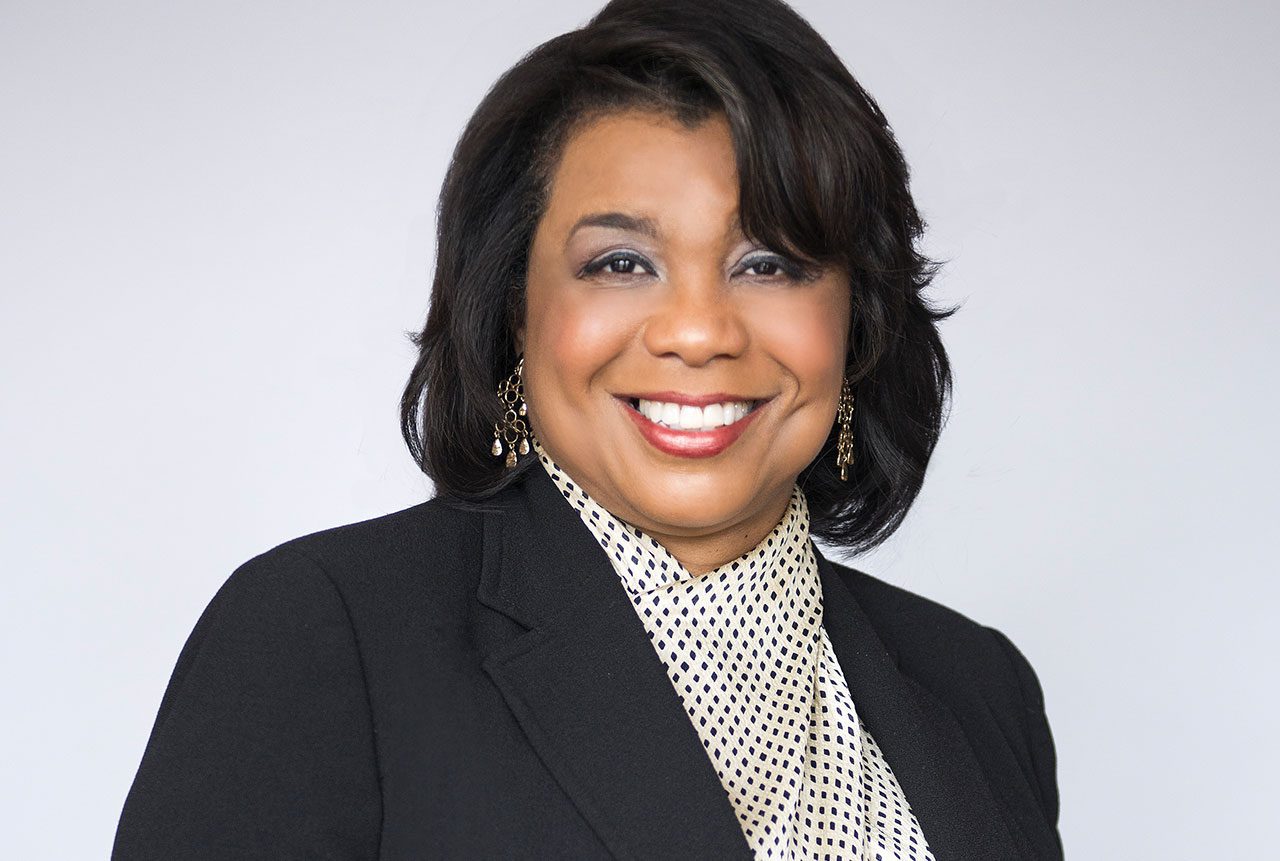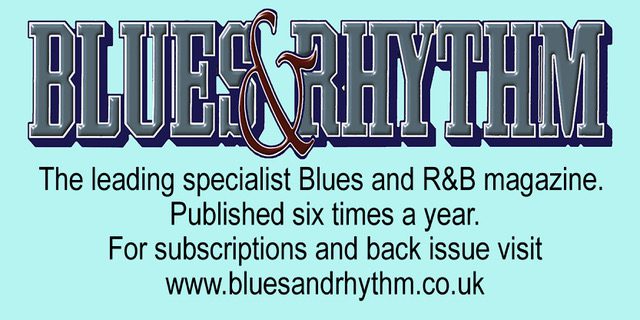The Memphis-based Blues Foundation, created in 1980, has become the organizational beacon of the blues world. The foundation has developed the genre’s two key events in the Blues Music Awards and International Blues Challenge, and has established membership and affiliates in 30 countries across the globe. Now, after four decades, there is a new president and CEO in Patricia Wilson Aden, succeding to Barbara Newman and Jay Sieleman before her. Patricia most recently served as president and CEO of the African American Museum in Philadelphia, but her long experienge inlcudes: executive director of the Rhythm and Blues Foundation, director of the Mid-Atlantic Regional Office of the National Trust for Historic Preservation, president of the Preservation Alliance for Greater Philadelphia, and executive director of the DC Preservation League. We met her (not yet in person) to ask few questions about the actual status of the blues and also a look into the future.
Dear Pat, could you please introduce yourself and tell us something about your experience?
I am delighted to connect with the European representatives of our global blues community. I come to The Blues Foundation with decades of experience in non-profit management, specializing in the celebration and preservation of cultural resources. Over the course of my career I have been privileged to hold leadership positions in historic preservation and museums, as well as music organizations. The consistent thread is that I have always run non-profit organizations that focus on the preservation and celebration of cultural resources – whether its historic architecture, fine art or music. Over the years I have come to specialize in organizations that celebrate African American cultural resources, including Rhythm & Blues and Blues music. After ten years at the African American Museum in Philadelphia I was ready for my next professional adventure. My new position as President & CEO of The Blues Foundation will allow me to draw upon many aspects of my professional experience. My expertise in non-profit management, my previous role at the Rhythm & Blues Foundation, and my experience running a museum are all relevant.
What do you think about blues music? Is this in your opinion an heritage for all americans?
Willie Dixon’s quote, “Blues is the roots; everything else is the fruits,” says it all. You cannot understand or appreciate American music unless you understand the integral role of the blues. No other muscial genre has had the far reaching impact of the blues. Its rhythms, structure and lyrics have reached across generations, changing musical taste and influencing artistic innovations. Blues music is a reflection of American history and African Americans’ response to socio-cultural conditions that are unique to America. It was born as African Americans’ creative response to oppression — the lyrical and melodic expression of hardship. But the blues is also a testimony to the perseverance of its creators. It was the willful, self-defining, outpouring of a people in defiance of a time and place that sought to deny them the fundamental freedoms of time, place and self-identity. These are timeless themes that are reflective of America’s unique history but have universal appeal and relevance.
What are the main programs of the Blues Foundation?
The Blues Foundation realizes its mission by offering many programs including:
- The Blues Music Awards – celebrate the accomplishments of blues musicans. Each year the we applaud the best of the best in blues music as determined by the vote of Blues Foundation members.
- The Blues Hall of Fame – The Blues Foundation’s Hall of Fame museum acknowledges the legends of blues who have made an indelible mark on the blues genre. Our wide-ranging collection reflects their contributions through recordings, sheet music, photographs, costumes and other rare memorabilia.
- The International Blues Challenge – the world’s largest gathering of blues musicians is an annual competition that is the culmination of contests sponsored by The Blues Foundation’s Affiliate societies from all around the world. The competition has served as the launching pad for the careers of many of our current blues artists.
- The Handy Artist Relief Trust (HART) Fund – provides financial aid and health advocacy to musicians and their families in need of assistance.
- Blues in the Schools – supports music education initiatives by partnering with our Affiliate societies in their local communities and via our toolbox of educational resources for teachers, parents and blues fans.
This year due to covid 19 the International Blues Challenge was cancelled, what was the reaction of the BF? Did you plan to have online events?
Like many organizations, The Blues Foundation had to quickly pivot from our traditional ways of presenting the International Blues Challenge and our other signature event, the Blues Music Awards. Of course, our primary goal is always to ensure the health and safety of blues musicians and fans, but we also understand the crucial role these two events play within the blues community. In many ways they serve as the glue that binds together our extended family of legacy artists, blues musicians, industry professionals and fans. During these events we celebrate the music, connect and reconnect with one another, and tap into the vital energy that infuses today’s blues music. The Blues Foundation board and staff have prioritized finding ways to present versions of the Blues Music Awards and the International Blues Challenge, understanding the importance of the events to the genre and to the international blues community. We are looking forward to bringing everyone together again for the 2021 Blues Music Awards that will be presented virtually on June 6. We are optimistic that vaccine will mitigate COVID-19 concerns and have begun planning for the 2022 International Blues Challenge.
The European Blues Union, born in 2011, can be seen as a young sister of the BF, do you think that a collaboration between such international organizations could bring something good for the blues world?
I am eager to explore ways that The Blues Foundation and the European Blues Union can collaborate to celebrate the music we love and to encourage the artists who create that music. Together we can educate young people about the far-reaching influence of the blues on today’s music. It is important in America and internationally to emphasize the relevance of contemporary blues music so that our audience continues to grow.
What do you think will be the direction and evolution of live music after almost one year of stop because of panemia? In your opinion will we ever come back to normal life? Or we should change something in our attitudes with live music?
It is in the interest of all of us associated with the music industry to work towards opening our venues safely so that musicians can get back to work and our fans can once again experience the joy of live music. However, we must realize that music lovers’ habits have changed over the past year and many people are now very comfortable with experiencing music virtually. The “new normal” of the future will mean that music fans will embrace and enjoy virtual experiences as well as live concerts.
How do you see the blues scene in USA? Is it growing, especially among the young generations?
Recent surveys tell us that the blues audience is aging, so we must make a concerted effort to educate and engage younger people. The Blues Foundation’s board has prioritized education programs that will share the empowering stories of blues history with school children. We must showcase new artists who bring exciting new energy to blues music while exhibiting deep respect for its historic roots. Blues music and blues artists must be relatable to younger, more diverse audiences if the genre is to remain a vital and relevant.
The Blues Foundation has many projects to support both the blues musicians and the young generations, could you briefly describe them for our italian and european audience?
The Blues Foundation feels an acute responsibility to address the issues that are most critical to the blues community. Clearly we must continue to provide support to blues musicians during the pandemic. Our COVID-19 Blues Musician Relief Fund serves as a safety net to meet the urgent financial needs of full-time blues musicians in North America. We have raised over $300,000 since establishing the fund in March 2020 and are proud to have been able to assist over 200 blues musicians as a result. We will continue to provide this critical service until the pandemic ends.
The Blues Foundation views youth education as an essential vehicle for the realization of its mission. Our Blues in the Schools programs directly respond to the urgent need for meaningful cultural education for all students. Emphasis has been placed on the development of programming that encourages racial empathy by building an appreciation of the African American artists who originated blues music and African Americans’ essential role in American culture and history.
What is your main goal as new Blues Foundation President?
I have the good fortune to have the opportunity to build upon the great work of my predecessors at The Blues Foundation. I hope to apply the best practices in non-profit management to ensure The Blues Foundation’s long-term financial sustainability and the growth of its membership. I hope my museum experience will benefit The Blues Foundation’s Blues Hall of Fame museum. The Blues Foundation’s collection should make our Blues Hall of Fame a destination for international travelers. I also hope The Blues Foundation will contribute to constructive conversations and healing strategies that address the racial issues that have troubled the blues community. Ultimately, my goal is to grow and diversify the audience of people who appreciate blues music by welcoming people of varying races, ages and nationalities.
What are the future plans of the Blues Foundation?
Thanks to our robust social media presence The Blues Foundation is able to fulfill our role as a global organization. With a Facebook following of over 600,000 we are able to connect with the international blues community. We hope to grow beyond our social network connections to perhaps develop shared programs with our European counterparts to build the public’s appreciation of the blues and blues artists.








Comments are closed